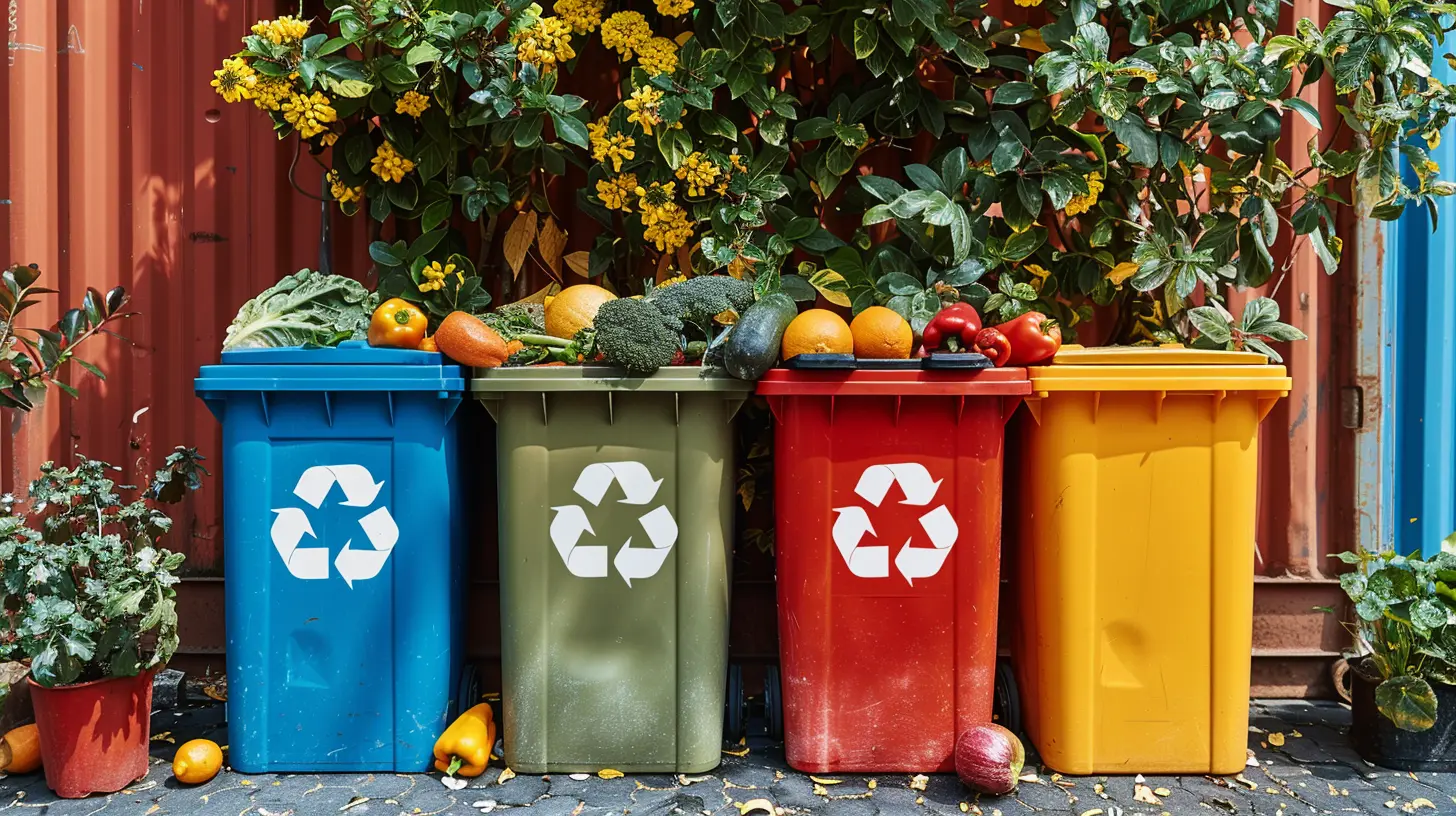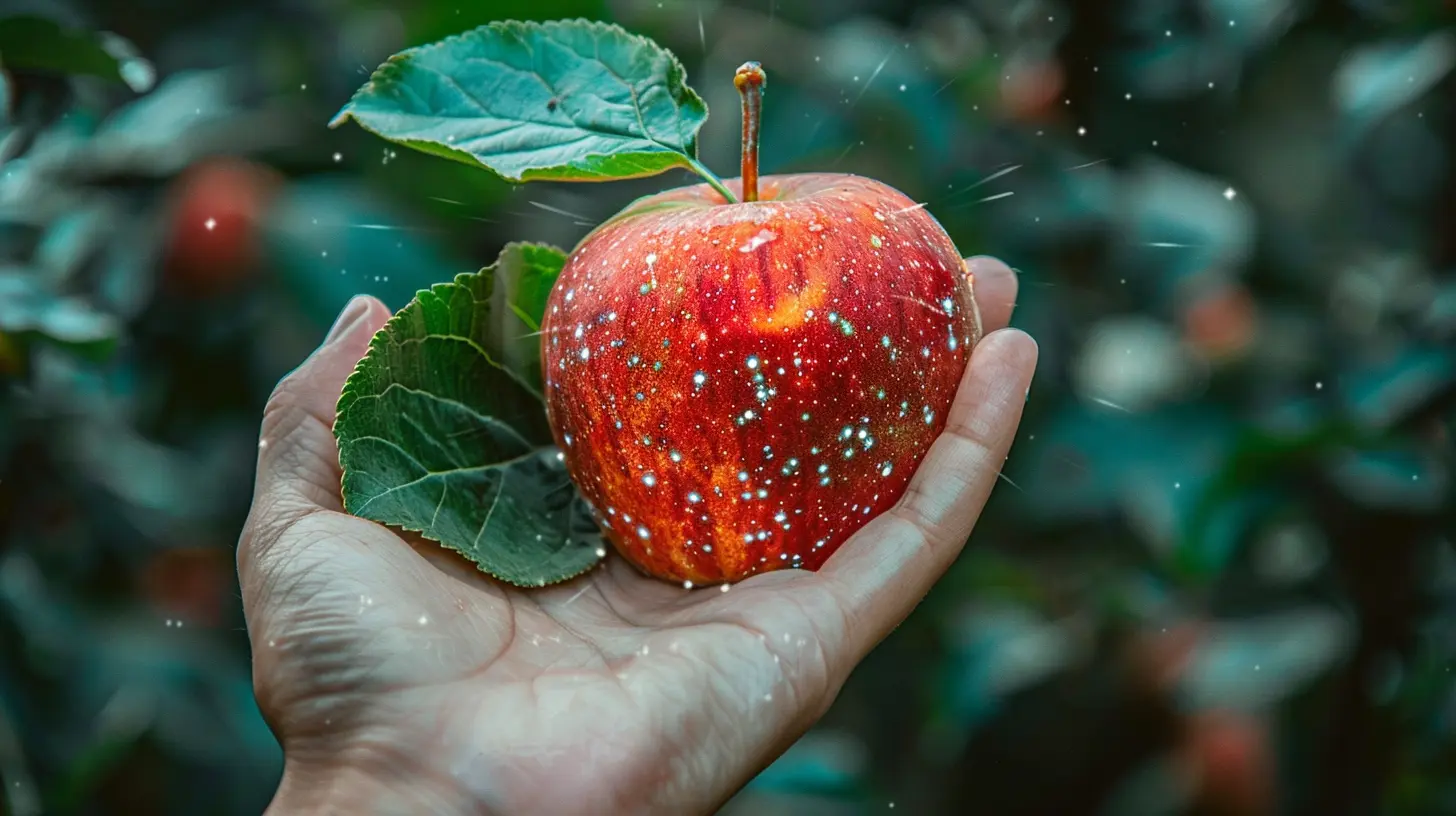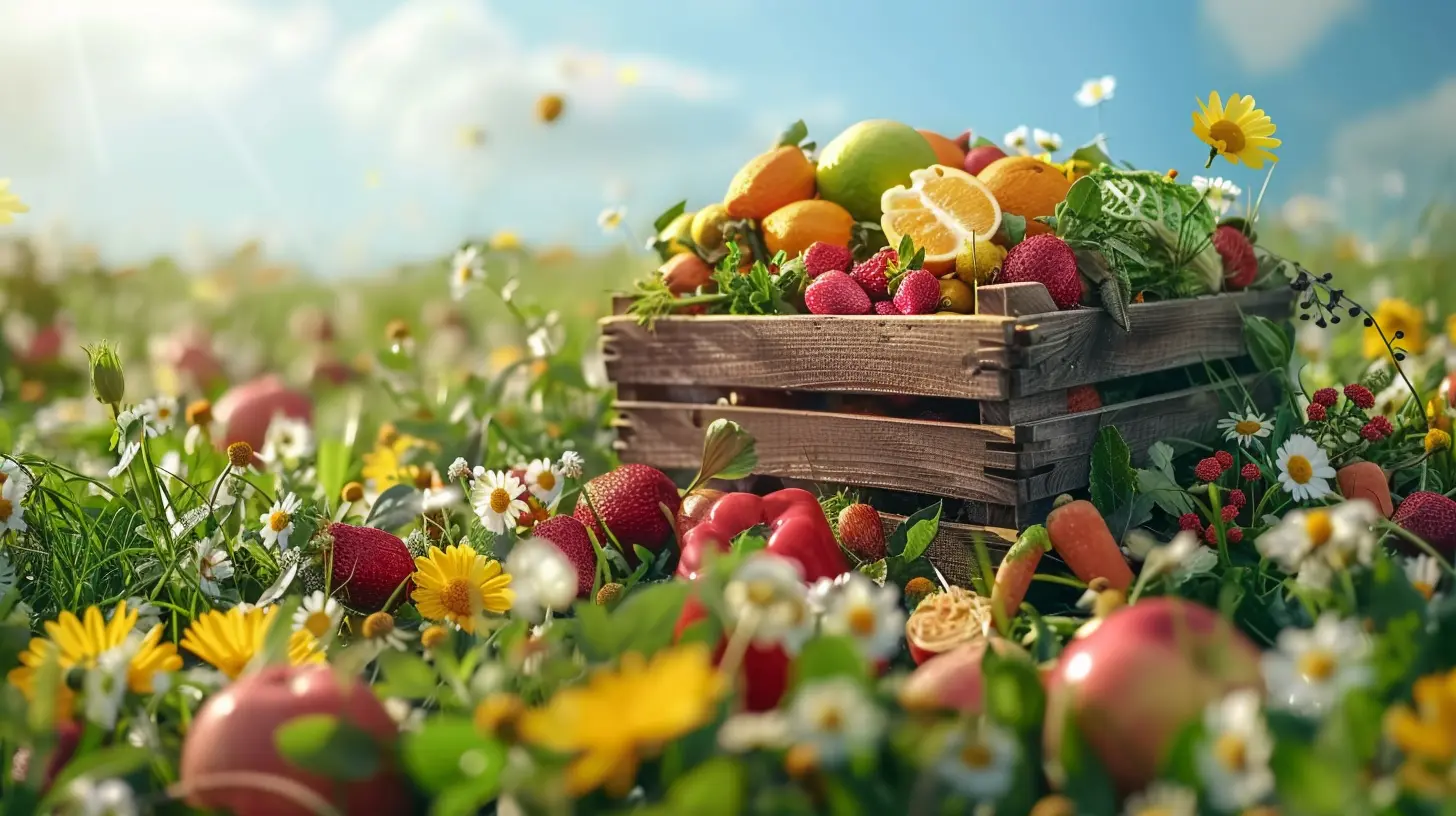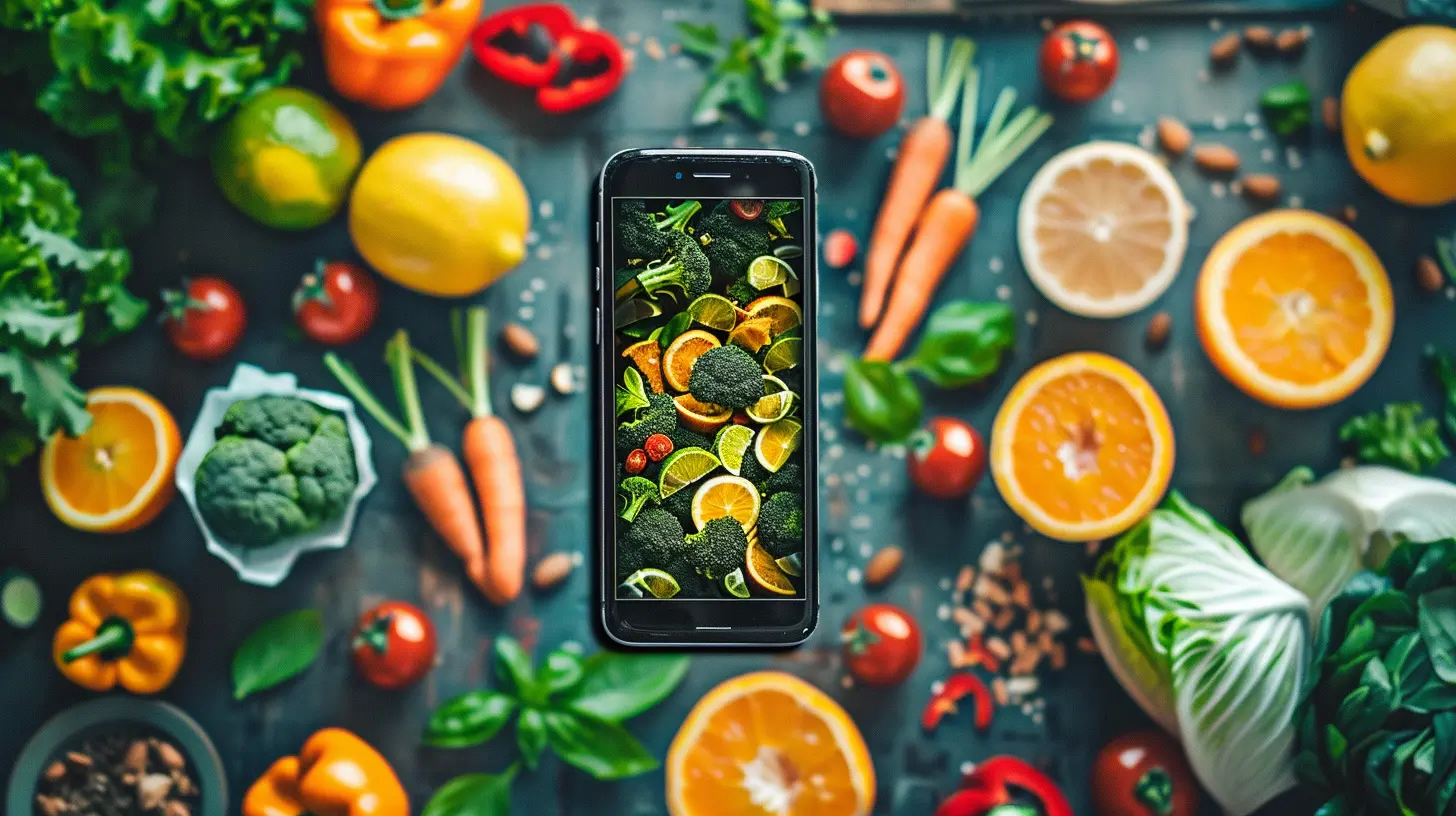The Role of Sustainable Tech in Reducing Global Food Waste
10 May 2025
When we think about global food waste, images of rotting fruits, half-eaten meals, or expired food in the back of our refrigerators often come to mind. But what if I told you that the scale of food waste is far more staggering than that? Globally, nearly one-third of all food produced is lost or wasted before it even reaches our plates. Let that sink in for a second. Now, this isn’t just about the food itself—think about the energy, water, and resources that go into producing all of that wasted food. It’s a massive environmental concern, and it’s one we can’t afford to ignore.
But here’s the good news: sustainable technology is stepping up to the plate (pun intended). From farm to fork, innovative solutions are being developed to tackle food waste head-on. So, let’s dive into how sustainable tech is playing a crucial role in reducing global food waste.

The Growing Problem of Food Waste
Before we get into the tech side of things, it’s essential to understand the scale of the problem we’re dealing with. According to the United Nations, about 1.3 billion tons of food is wasted annually. That’s enough to feed over 800 million people—the very people who are going hungry every single day!But it’s not just about hunger. Food waste also accounts for a significant portion of greenhouse gas emissions. When food is wasted, it often ends up in landfills where it decomposes and releases methane—a greenhouse gas far more potent than carbon dioxide. In fact, if food waste were a country, it would be the third largest contributor to global warming after the U.S. and China. Now that’s something to chew on, right?

How Does Sustainable Tech Come Into Play?
So, what’s the solution? It’s not as simple as telling people to stop wasting food (though that would help). The issue is complex, and it occurs at multiple stages of the food supply chain—from production and distribution to consumption. This is where sustainable tech comes into the picture, helping to minimize waste at every step.Let’s break it down, shall we?

1. Tech on the Farm: Precision Agriculture
One of the leading causes of food waste happens before the food even leaves the farm. Sometimes crops are overproduced to meet demand, or they’re simply left to rot because they don’t meet market standards (you know, the perfectly round apple versus the slightly lumpy one).Enter precision agriculture. This sustainable tech uses data and AI to optimize farming practices. Sensors in the soil, drones flying overhead, and smart irrigation systems can monitor crop health, soil moisture, and other critical variables in real-time. Farmers can make data-driven decisions, reducing overproduction and minimizing the waste of resources like water and fertilizers.
Think of it like this: instead of a farmer playing a guessing game with the weather and hoping for the best, they’re using science and technology to make informed choices. The result? Less waste, better yields, and more efficient use of resources.
2. Smarter Supply Chains: Blockchain for Transparency
Once the food leaves the farm, it enters the complicated world of supply chains. Here’s the thing—food often gets wasted simply because it takes too long to get from point A to point B. Or worse, it gets spoiled during transportation due to poor handling or inadequate storage conditions.This is where blockchain technology comes in. By creating a transparent and traceable supply chain, blockchain allows every stakeholder (from farmers and distributors to retailers and consumers) to track where food comes from and where it’s going. This means fewer delays, better inventory management, and quicker responses to potential issues like contamination or spoilage.
Imagine being able to scan a barcode on a package of strawberries and instantly know where they were picked, how long they’ve been in transit, and whether they’ve been stored at the correct temperature. It’s like having a backstage pass to the entire food journey!
3. Cutting-Edge Food Storage: Smart Packaging
One of the most frustrating aspects of food waste is when food spoils before we even get a chance to eat it. How many times have you opened the fridge only to find that your veggies have gone all mushy or your milk has turned sour way before the expiration date?Innovations in smart packaging are tackling this issue head-on. These are not your average wrappers and containers. Smart packaging can monitor the freshness of the food inside, changing color to indicate when the item is about to spoil. Some packaging even has built-in sensors that track the temperature and humidity levels to ensure optimal storage conditions.
In the future, your fridge might even be able to communicate with these smart packages, alerting you when something is about to go bad. It’s like having a personal assistant whose sole job is to make sure you eat your leftovers before they grow fuzzy.
4. AI and Machine Learning: Reducing Retail Waste
Retailers are a significant contributor to food waste. Sometimes, stores order too much stock to meet demand, but when the food doesn't sell, it’s thrown away. Or they might reject perfectly good produce simply because it doesn’t look picture-perfect. It’s a wasteful cycle.However, AI and machine learning are revolutionizing how retailers manage their inventory. By analyzing buying patterns, weather conditions, and even local events, AI can help stores predict how much food they’ll actually need, reducing the likelihood of overstocking. Additionally, machine learning algorithms can assist in dynamic pricing—lowering the prices of items that are nearing their expiration date to encourage people to buy them before they go to waste.
Think of it like Netflix, but for food. Just as Netflix recommends shows based on your viewing habits, AI can recommend how much food a store should stock based on consumer behavior. It’s a win-win for both the retailer and the planet!
5. Food Rescuing Apps: Connecting Surplus with Demand
Ever heard the saying, “One person’s trash is another person’s treasure”? Well, that applies to food, too. Sometimes restaurants, cafes, and grocery stores have surplus food that’s perfectly edible but would otherwise be thrown away.Enter food rescuing apps like Too Good To Go or Olio. These apps connect businesses with surplus food to consumers who are eager to buy it at a discounted price. It’s a brilliant way to prevent food from going to waste while also offering affordable meals to people.
These platforms are a fantastic example of how tech can foster a more sustainable, community-driven approach to food consumption. Plus, it’s a great way to score a delicious meal for less!
6. Home Solutions: Smart Fridges and Food Tracking
Let’s not forget the role we, as consumers, play in food waste. Studies show that a significant amount of waste happens in our homes. We buy too much, forget what we have, and end up throwing perfectly good food away.Thanks to smart fridges and food tracking apps, we can become more mindful of what we’re wasting. Smart fridges can keep track of the items inside, alerting you when something is about to expire. Some even come with built-in cameras so you can check what’s in your fridge while you’re grocery shopping—no more buying that third carton of milk when you already have two at home!
On the app front, platforms like NoWaste or MealBoard allow you to input your groceries and track their expiration dates. They can even help you plan meals based on the ingredients you already have, reducing the likelihood of anything going bad. It’s like having a food-saving fairy godmother guiding you through your kitchen!
7. Upcycling Food Waste: Turning Trash Into Treasure
Finally, let’s talk about upcycling. No, I’m not talking about turning old furniture into trendy decor. In the food world, upcycling refers to taking surplus or “ugly” food and transforming it into something new and delicious.Some companies are using food processing technologies to turn food waste into value-added products. For instance, “imperfect” fruits and vegetables can be repurposed into juices, jams, or dried snacks. Grains leftover from brewing beer can be turned into flour for baking. These innovations not only reduce waste but also create new revenue streams for businesses.
The concept is simple: just because something doesn’t look perfect doesn’t mean it can’t be useful. It’s time we rethink our relationship with food and embrace the idea that beauty is more than skin deep—especially when it comes to produce!

The Future of Food Waste Reduction
Sustainable tech is an exciting frontier, and it’s already making a massive impact on reducing food waste. But we’re just scratching the surface. As technology advances, we’ll continue to see more innovative solutions that address this global issue.That being said, technology alone isn’t the silver bullet. It’s up to all of us—farmers, retailers, consumers, and policymakers—to adopt these technologies and make the most of them. Reducing food waste isn’t just about saving money or resources; it’s about building a more sustainable future for our planet.
So, the next time you toss out that wilted lettuce or forget about that can of beans in the back of the pantry, remember that sustainable tech is working hard to change the way we think about food waste. And who knows? Maybe one day, we’ll live in a world where no food goes to waste at all.
all images in this post were generated using AI tools
Category:
Environmental TechAuthor:

Jerry Graham
Discussion
rate this article
5 comments
Juno Becker
Great insights on sustainable tech's vital impact!
May 19, 2025 at 4:50 AM

Jerry Graham
Thank you! I'm glad you found the insights valuable. Sustainable tech truly has the potential to make a significant difference in reducing food waste.
Wyatt O'Neal
Great insights! It's inspiring to see how sustainable tech can tackle food waste—every little step counts toward a greener future!
May 16, 2025 at 3:09 AM

Jerry Graham
Thank you! I'm glad you found it inspiring—together, we can make a significant impact on reducing food waste.
Amos McEvoy
Sustainable technology plays a crucial role in minimizing global food waste by enhancing supply chain efficiency, improving storage solutions, and facilitating smarter consumption patterns, ultimately promoting environmental and economic sustainability.
May 13, 2025 at 9:02 PM

Jerry Graham
Thank you for your insightful comment! I completely agree that sustainable technology is key to addressing food waste through better efficiency and smarter practices.
Judith Monroe
This article raises fascinating points about how sustainable technology can tackle food waste! I’m curious about which innovative solutions are proving most effective. Are there specific case studies or technologies that have shown significant impact in reducing waste?
May 13, 2025 at 3:02 AM

Jerry Graham
Thank you for your interest! Several case studies highlight effective solutions, such as AI-driven inventory management systems, which optimize food supply chains, and anaerobic digesters that convert food scraps into energy. These technologies are making a significant impact in reducing food waste.
Sybil McPhee
Great insights! Sustainable tech is crucial for change.
May 11, 2025 at 8:14 PM

Jerry Graham
Thank you! I completely agree—sustainable tech is essential for driving meaningful change in food waste reduction.




